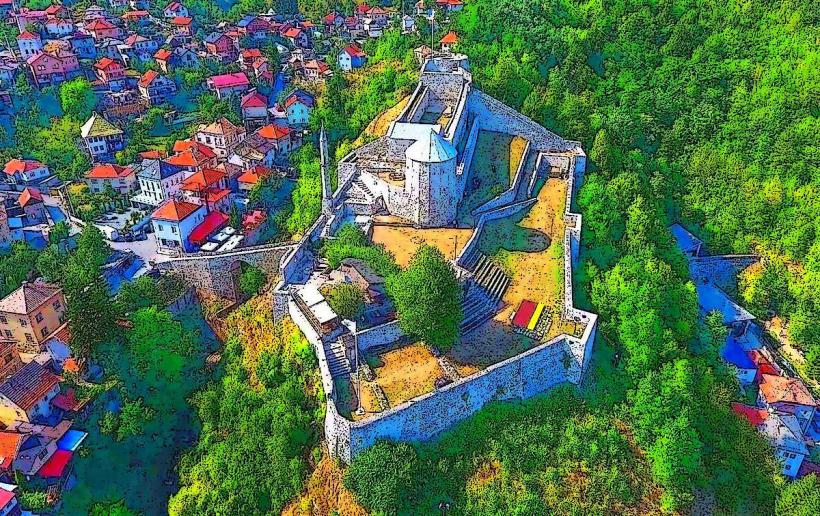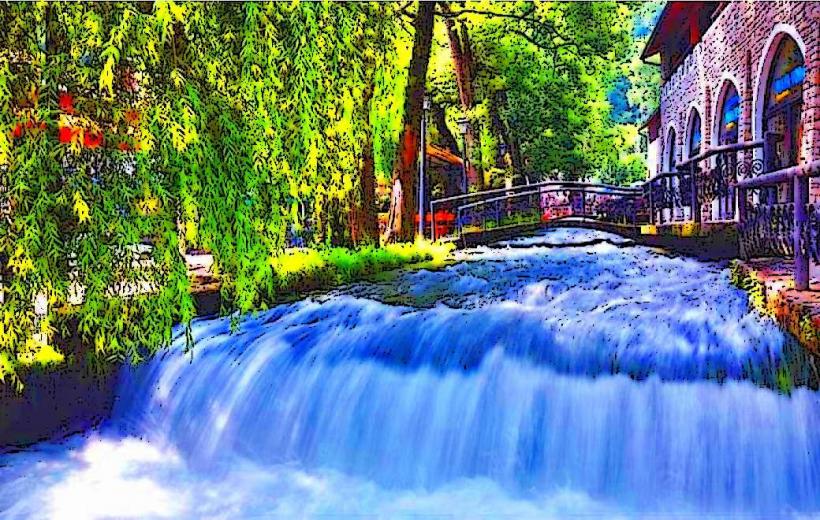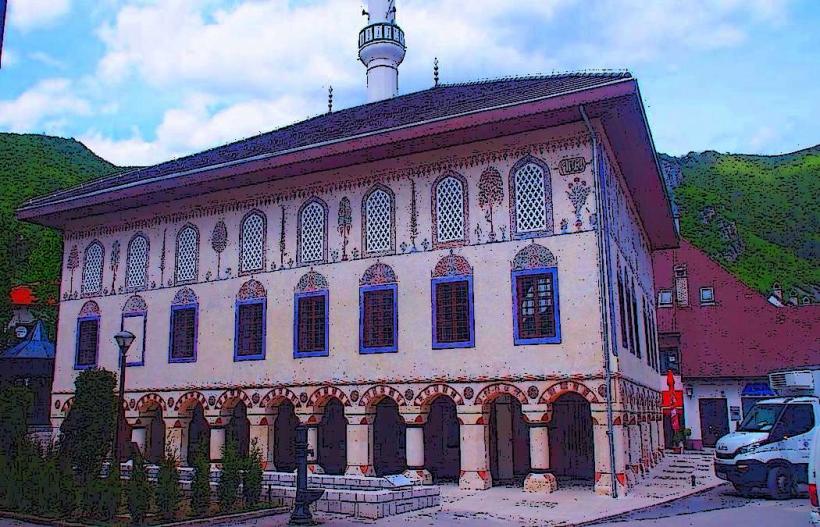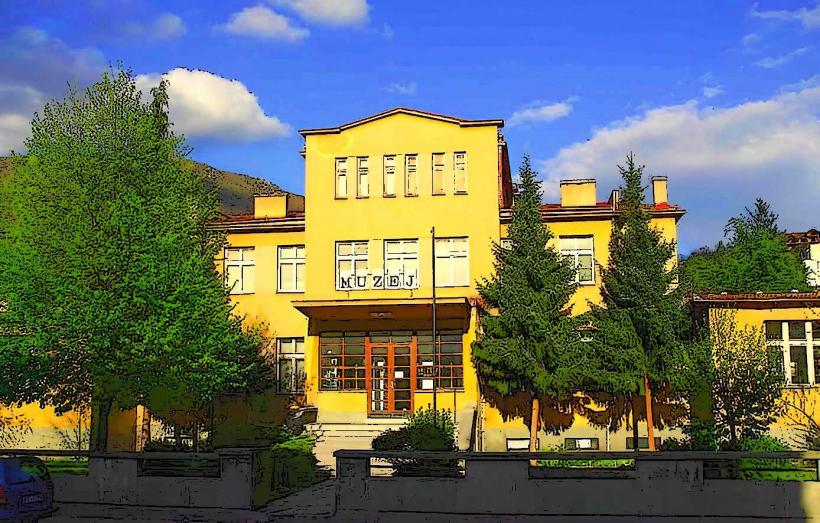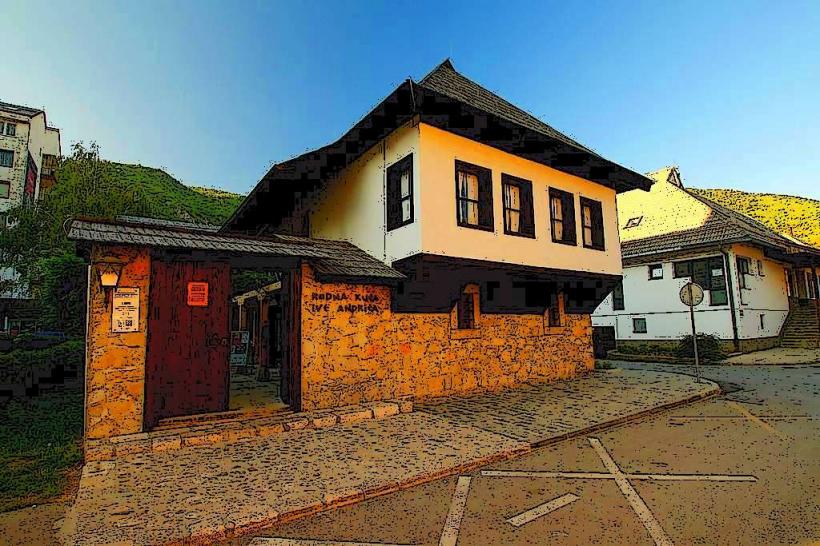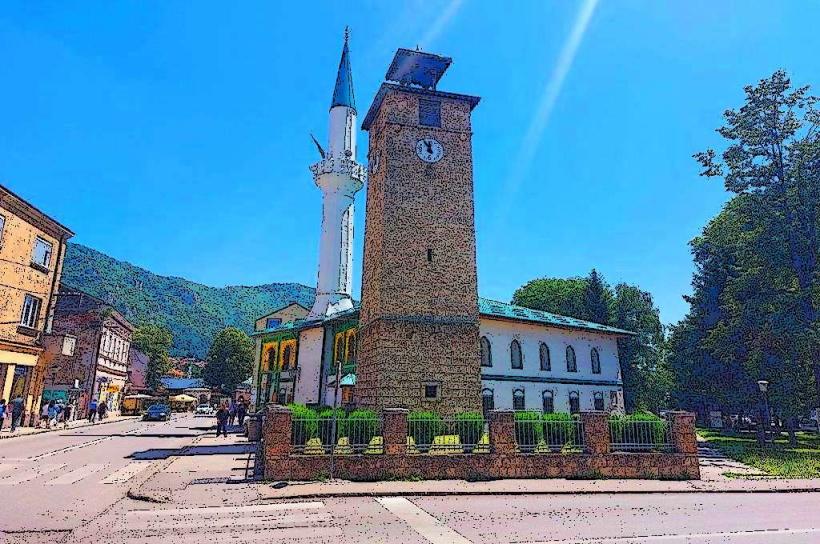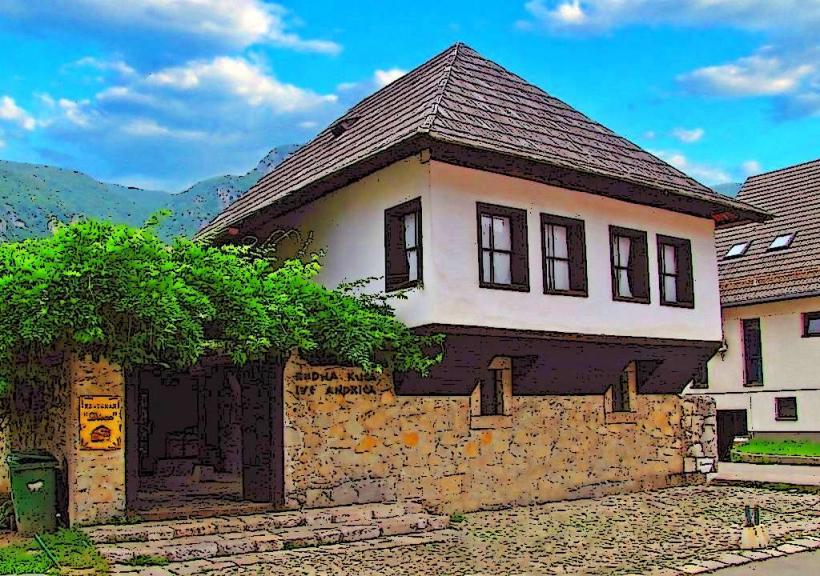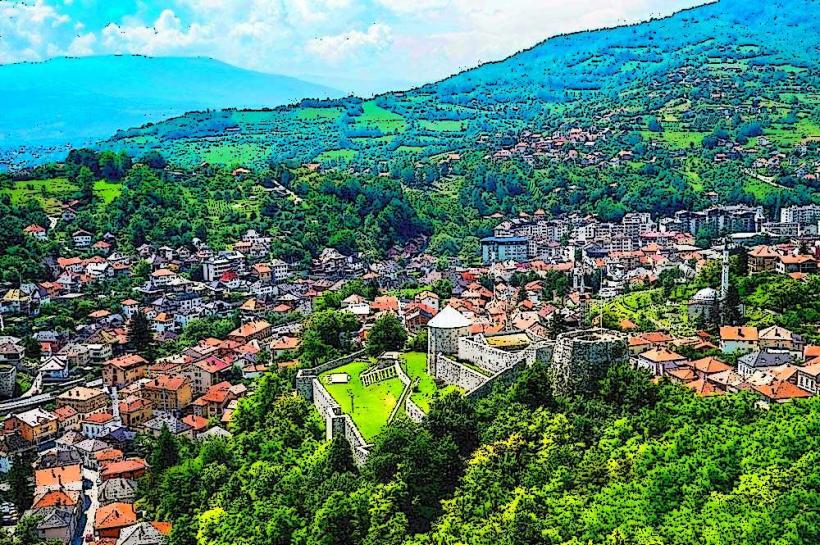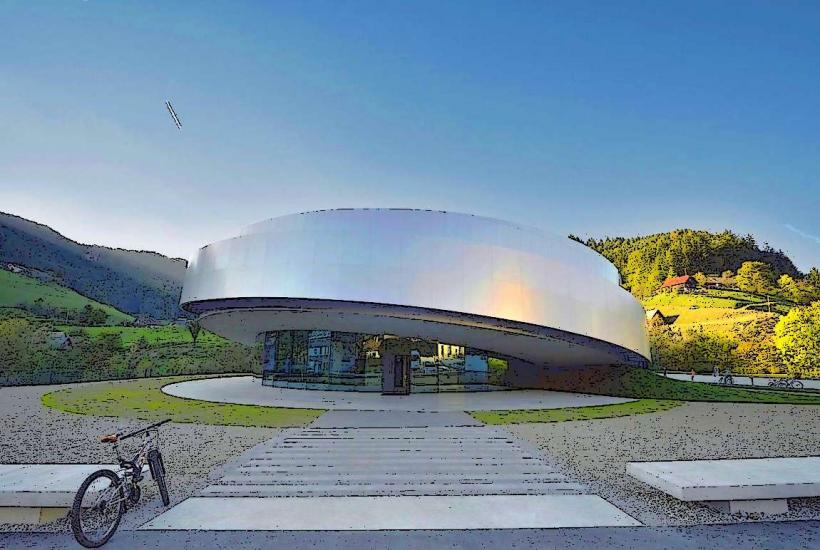Information
Landmark: Pasha's MosqueCity: Travnik
Country: Bosnia and Herzegovina
Continent: Europe
Pasha's Mosque, Travnik, Bosnia and Herzegovina, Europe
Pasha's Mosque (Pasha Džamija) is an important historical and religious site located in Travnik, Bosnia and Herzegovina. The mosque holds significant cultural and architectural value as one of the key Ottoman-era monuments in the region.
Overview of Pasha’s Mosque
Location:
- Pasha’s Mosque is situated in the heart of Travnik, a town historically known for its Ottoman influence and rich cultural heritage. It is one of the most prominent mosques in the town, contributing to the historical skyline of Travnik.
Historical Background:
- The mosque was built in the 18th century, during the period when Travnik was an important center of Ottoman administration. It is named after the Ottoman pasha, a title for high-ranking officials, who likely commissioned or funded its construction.
- The mosque was built in honor of the Ottoman viziers and their influence in the region, particularly when Travnik served as the seat of the Ottoman governors. The exact date of its construction is not definitively documented, but it is believed to have been completed in the mid-to-late 1700s.
Religious and Cultural Significance:
- The mosque is not only a place of worship but also serves as a symbol of the Ottoman cultural and architectural heritage in Bosnia and Herzegovina. It represents the spread of Islam and the Ottoman influence in the Balkans during this era.
- Like many Ottoman mosques, Pasha’s Mosque played a central role in the local community, serving as a religious, social, and cultural gathering place for Muslims in Travnik.
Architectural Features
Ottoman Architecture:
- Pasha’s Mosque features the traditional Ottoman architectural style, with a large, domed prayer hall and minaret, which is a prominent feature of Ottoman mosques. The architecture is characterized by simple yet elegant lines and designs, reflecting the spiritual and practical needs of the mosque's function.
- The mosque’s dome is particularly striking, standing as a focal point of the structure, with its traditional construction reflecting the ingenuity of Ottoman architects.
Interior Design:
- Inside, the mosque features traditional Ottoman calligraphy, woodwork, and tile decorations, showcasing the artistic achievements of the period. The mihrab (prayer niche) is intricately designed, directing worshippers toward Mecca during their prayers.
- The minbar (pulpit) is made of finely crafted wood, with traditional Islamic patterns and designs adorning its surface. The prayer hall, while modest, is spacious and designed to accommodate many worshippers.
Courtyard:
- The mosque is surrounded by a spacious courtyard that includes a fountain for ablutions, a common feature in Ottoman mosques. The courtyard serves as a peaceful place for reflection, prayer, and communal gathering.
- The mosque’s garden is often a place for locals to visit and relax, adding to the serene atmosphere of the site.
Cultural and Religious Role
Religious Functions:
- As a mosque, Pasha’s Mosque continues to serve as a place of worship, especially for the local Muslim community in Travnik. It holds regular prayer services (such as Jumu'ah, the Friday prayer), as well as special religious events like the Ramadan prayers and Eid celebrations.
- The mosque is also used for religious education, with local children and adults coming to learn about the Quran and Islamic teachings.
Cultural Hub:
- The mosque, like many Ottoman-era mosques, also functions as a cultural center, hosting various community events, social gatherings, and educational activities for the local population. It helps foster a sense of community and cultural identity, especially in a region with a rich Ottoman heritage.
Tourism and Visitor Experience
Visiting Pasha’s Mosque:
- Visitors to Pasha’s Mosque can explore its historical and architectural beauty, gaining insights into Ottoman culture and Islamic art. The mosque is open to both worshippers and tourists, and while it remains an active religious site, it welcomes those interested in learning about the rich history of the region.
- The mosque is part of Travnik's broader collection of Ottoman landmarks, which attracts tourists interested in the history of the Ottoman Empire and Islamic architecture.
Guided Tours:
- For visitors wishing to learn more about the mosque's history and significance, guided tours are available. These tours provide context for the Ottoman architectural style, the historical role of the mosque, and its importance in the cultural fabric of Travnik.
Conclusion
Pasha’s Mosque stands as an important historical, religious, and cultural monument in Travnik, Bosnia and Herzegovina. Its architectural beauty, serene atmosphere, and deep ties to the Ottoman period make it a significant part of the town's legacy. Visitors to the mosque are not only offered a glimpse into the spiritual life of the region but are also able to experience the artistic and cultural richness of the Ottoman Empire that still resonates in Bosnia and Herzegovina today.

